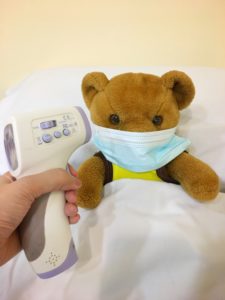Following simple steps can help protect children, minimise the spread of illness in education and childcare settings and protect wider communities.
Flu and coronavirus (COVID-19) are currently circulating at high levels and are likely to continue to increase in coming weeks. High numbers of scarlet fever, which is caused by group A streptococcus, also continues to be reported.
- Children and young people who are unwell and have a high temperature should stay at home and where possible avoid contact with other people. They can go back to an education or childcare setting when they no longer have a high temperature without medication and they are well enough in themselves.
- Practise regular handwashing with soap and warm water. Catching coughs and sneezes in tissues then binning them is another simple way to help stop illness from spreading.
- Adults should also try to stay home when unwell and if you do have to go out, you should wear a face covering. When unwell don’t visit healthcare settings or visit vulnerable people unless urgent
- Remember that flu vaccination is still available for all eligible groups and is the best protection against the virus. Getting children vaccinated protects them and others they come into contact with, and it’s still not too late. You can get more information on getting your child vaccinated against flu on NHS.UK.
Eligible children include:
- those aged 2 and 3 on 31 August 2022
- all primary school-aged children
- some secondary school-aged children, this includes children with long-term health conditions, such as diabetes or heart problems. If you’re not sure, check with the school aged immunisation service team, the nurse or GP at your surgery, or the specialist if your child has hospital care.

